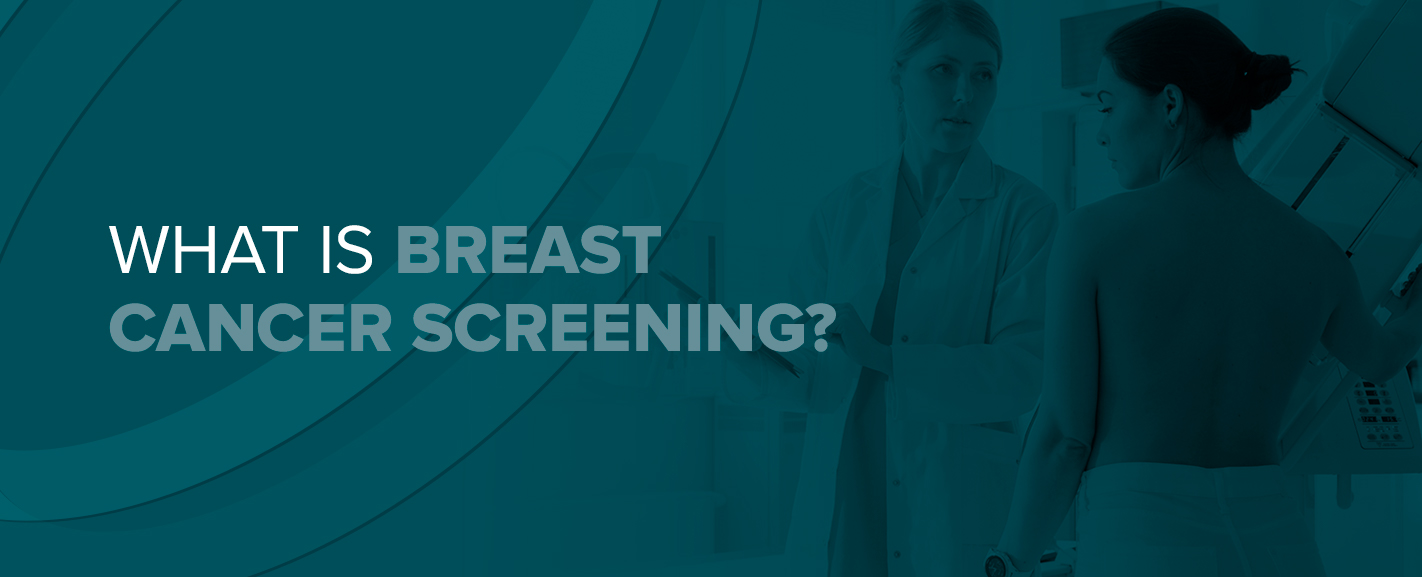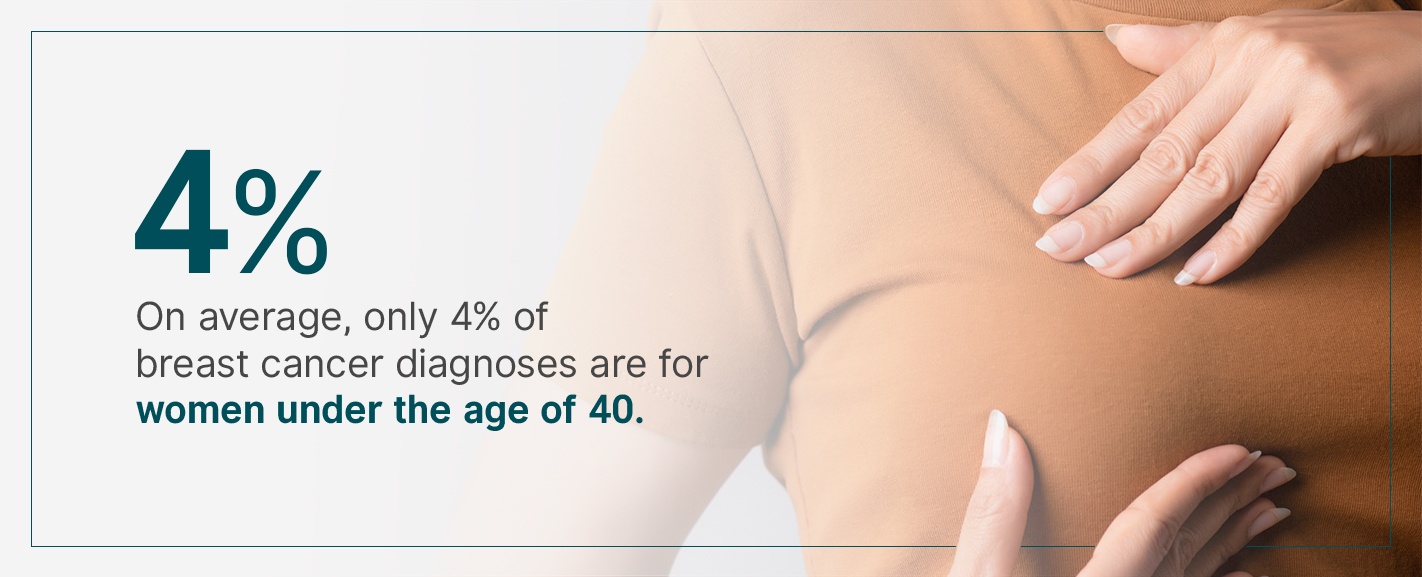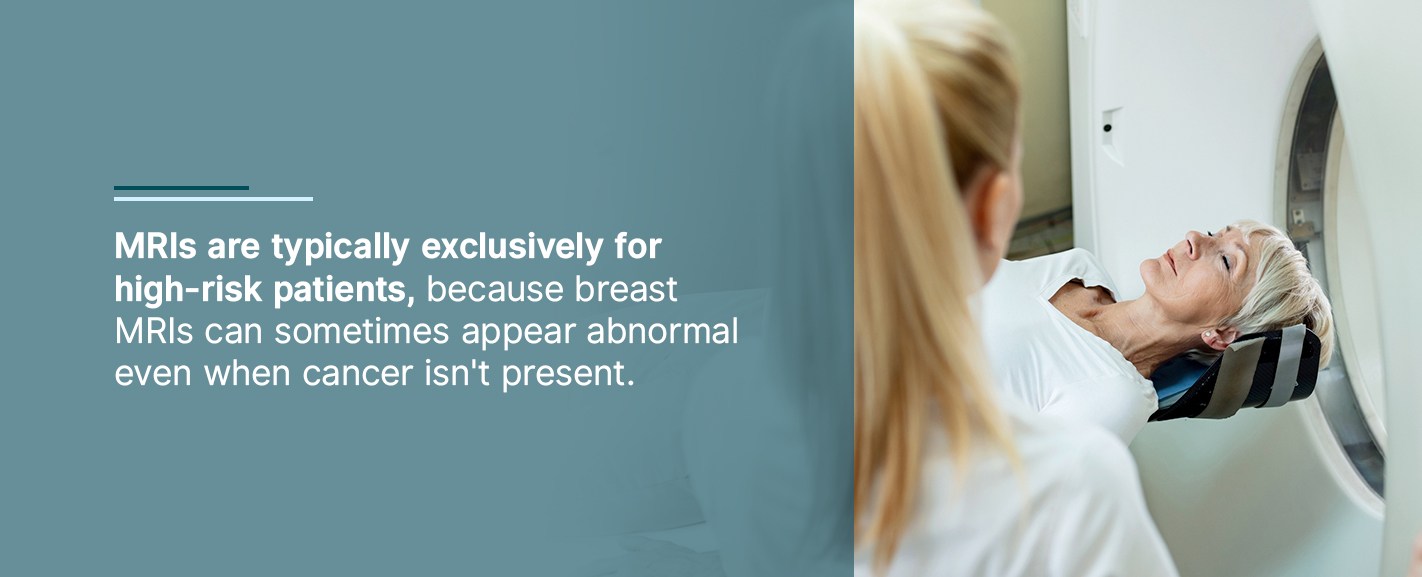What Is Breast Cancer Screening?
In the U.S., one out of every eight women will develop breast cancer by the time she is 75. Regular breast cancer screenings help detect cancer early — even before symptoms appear. Finding cancer in the early stages enables doctors to treat it better and extend a patient’s life expectancy.
If your doctor has recommended that you undergo breast cancer screening, you probably have many questions about what that entails, especially if you’ve never gone through the process before. Some people even experience anxiety over these screenings, even if there is no reason to suspect a problem. Understanding what to expect before your imaging appointment is an essential step toward reducing any worry and understanding how breast cancer screening can help you maintain a healthy life.
What to Expect During a Breast Cancer Screening
Breast cancer screening is the process of checking breast tissue for indicators of cancer, even before signs of the disease may appear. Depending on your age and risk level, breast cancer screening may include monthly home checks. As you age, it may require medical tests, such as a mammogram or MRI. Most gynecologists also perform a breast exam as part of an annual well-woman checkup.
Medical experts recommend monthly self-checks for all women. Why? Though breast cancer rates in women under 40 are low, younger women can develop breast cancer, especially if they have a family history of this disease. Beginning the habit of breast screening at home establishes a pattern women can continue as they age. While it doesn’t prevent cancer from occurring, it’s an essential tool that can identify breast lumps or irregularities.
The primary reason for breast cancer screenings — both home screenings and clinical — is not to prevent cancer. The purpose of these breast exam screenings is to detect cancer in its earliest phases, so it is easier to treat and less likely to be fatal.
Recommendations for Breast Cancer Screening Frequency
When do you get screened for breast cancer? You’ll typically see recommendations for breast cancer screenings — and their frequency — broken down into age ranges. However, if your doctor considers you to be at high risk for breast cancer, it’s crucial to consult with them to develop a screening plan tailored to your age and overall health.
1. Under 40
On average, only 4% of breast cancer diagnoses are for women under the age of 40. However, this is the time to establish good breast health and screening habits. Make a point to perform self-examinations at home, at least once a month. Your gynecologist should also perform a clinical breast exam during your annual visit. If you notice any unusual lumps or changes to your breasts, report these to your doctor, so they can advise you on whether or not medical screening is necessary. Your doctor may recommend a mammogram to further investigate any lumps or irregularities.
2. Age 40-49
At this phase, it’s vital to continue self-examinations, as well as annual clinical exams. The Centers for Disease Control don’t recommend yearly mammograms until after age 50 for women of average risk. However, your doctor may recommend that you begin regular screenings sooner, especially if you are a high-risk patient or there are concerning changes in your breasts.
3. Age 50+
If you are over 50, your doctor will likely recommend an annual mammogram. This test aims to detect cancerous lumps and tissues inside the breasts before they become big enough to feel. Even if you’ve had several normal mammograms in a row, it’s essential to continue getting one each year. Having annual mammograms won’t prevent breast cancer, but yearly screenings can help with early detection. Detecting cancer early generally makes it easier to treat and reduces its chances of being fatal.
Schedule an Appointment At Envision Imaging
Breast Cancer Screening Diagnostic Tests
If you are over 50 or your doctor has identified an abnormality in your breast, they may refer you for diagnostic tests. Most people are familiar with the term “mammogram,” but do you know what a mammogram is? And is a mammogram your only option?
1. Mammogram
A mammogram is an x-ray of the breast. A mammogram cannot prevent cancer, but it is the most effective screening test for the early detection of cancer. A mammogram involves placing each breast between two plastic plates, which the x-ray technologist compresses. Flattening the breast tissue helps the imaging system get a more comprehensive view inside the breasts. A radiologist will read the results of the mammogram, then forward them on to your doctor. If the mammogram is normal, there isn’t anything else to do until it’s time for the next one. If the test discovers irregularities, your doctor may recommend additional screening.
2. MRI
An MRI combined with a mammogram can screen women at high risk for breast cancer. Unlike mammograms, which use x-rays, an MRI uses radio waves and magnets to create a complete picture of a woman’s breast tissue. MRIs are typically exclusively for high-risk patients, because breast MRIs can sometimes appear abnormal even when cancer isn’t present. For this reason, doctors recommend that women of average risk only receive a mammogram.
3. Ultrasound
If an abnormality shows up on a mammogram or MRI, a doctor may use ultrasound to diagnose the lump. Ultrasound — which relies on sound waves to create a picture — can provide information about blood flow to the lump, as well as its size and structure. This information is crucial in understanding the makeup of a lump in the breast and to confirm the presence of cancer.
Schedule Your Routine Breast Cancer Screening
Regardless of your age or risk level, it’s vital to maintain a schedule of self-checks and annual checkups. If you’re over 40 or have risk factors for breast cancer, it’s also essential to talk with your doctor about regular breast cancer screening. At Envision Radiology, we provide high-quality medical imaging services — including breast cancer screening — for patients of all ages. In addition to providing mammograms, MRIs, CT scans and more, our goal is to educate patients on the importance of medical screenings and taking control of their health long before problems arise.
Time for your annual breast cancer screening? Schedule an appointment at Envision Imaging or The Women’s Center at Colorado Springs Imaging.
Call To Schedule Your Appointment
Sources:
- https://www.cdc.gov/cancer/breast/basic_info/screening.htm
- https://www.acog.org/patient-resources/faqs/gynecologic-problems/mammography-and-other-screening-tests-for-breast-problems
- https://ww5.komen.org/BreastCancer/GettingOlder.html
- https://www.breastcancer.org/symptoms/testing/types/self_exam
- https://www.cancer.org/cancer/breast-cancer/screening-tests-and-early-detection.html
- https://www.radiologyinfo.org/en/info.cfm?pg=breastus




